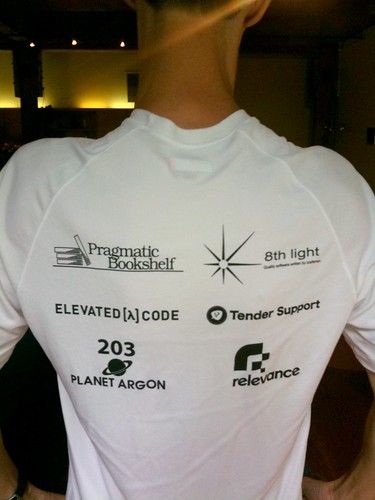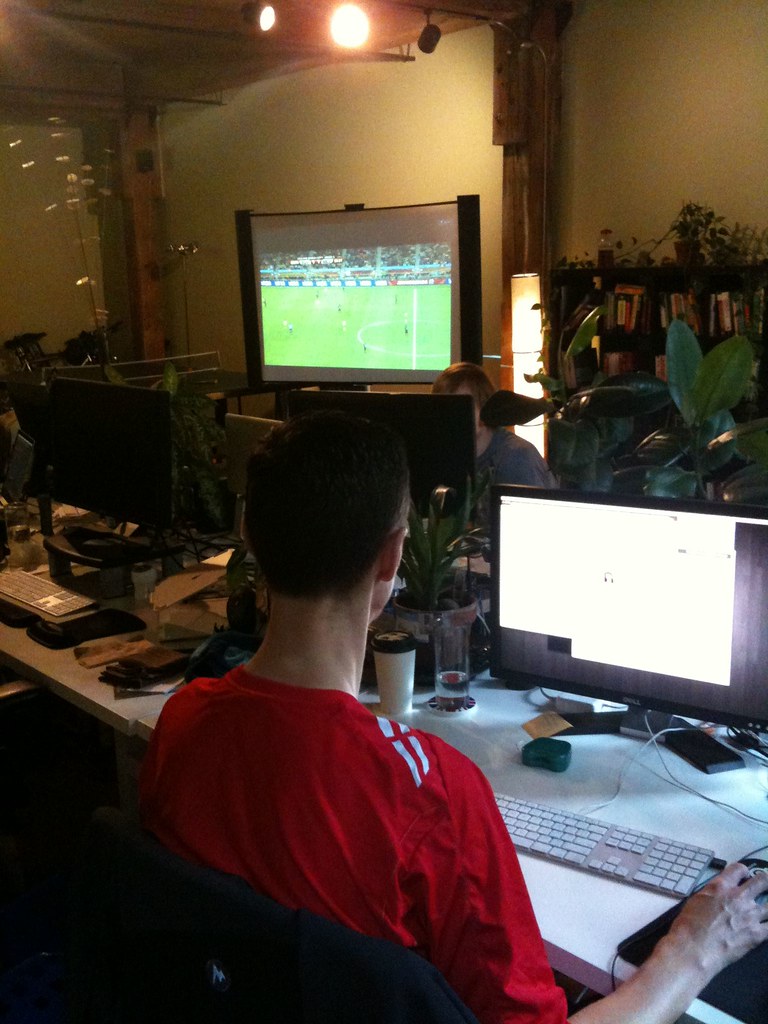
Last year we were happy to sponsor (and participate) in the RubyConf5k. We helped sponsor t-shirts, which meant we’d have our logo included on the back of the shirt.
On the morning of the race, I was looking at the freshly-printed shirts and noticed, “203” above our logo. What did this mean? After a few minutes, I realized that this was our studio’s suite number!
So… the backstory.
On the day that we needed to send over the logo, Allison was out of the studio. I decided to look for a file myself and began rummaging through the Dropbox where our InDesign files are located in search of a B&W graphic with our logo in it. Apparently, the file I found had the number 203 at the top of the image but I completely missed that when opening it up.
Lesson learned? Always have someone else double-check something before it ends up being printed on the back of a t-shirt. :-)


